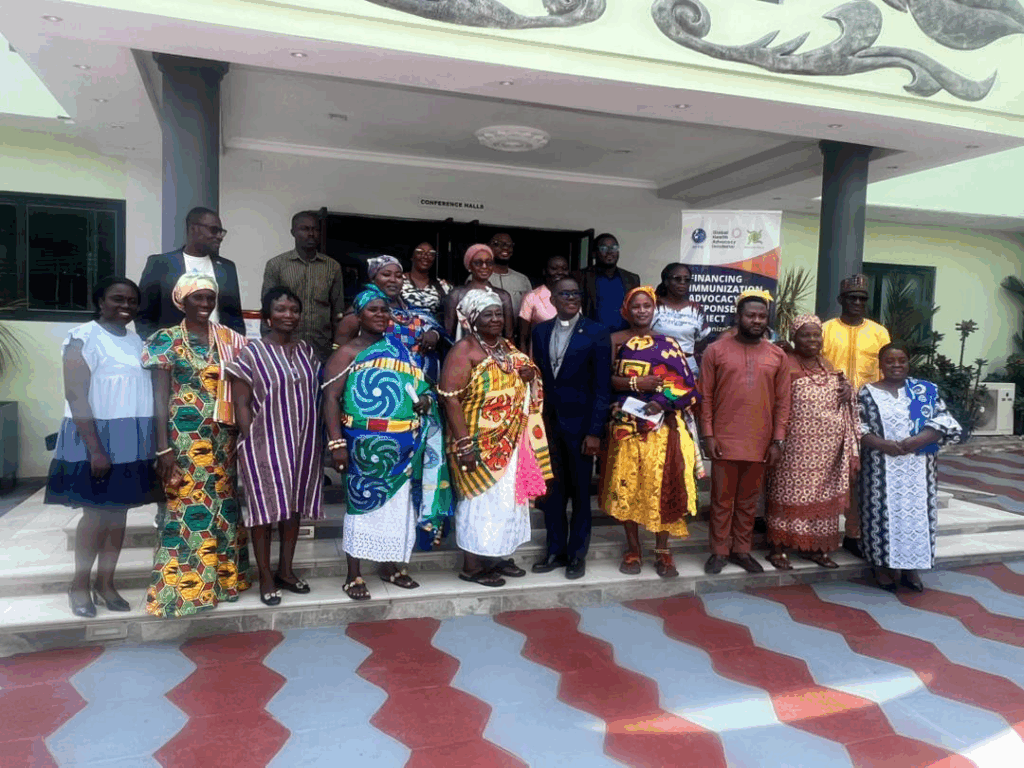
Health advocates are calling for stronger financial support to sustain Ghana’s immunisation programmes and protect children from life-threatening diseases.
The call was made at a workshop organised by Hope for Future Generations (HFFG) in collaboration with the Global Health Advocacy Incubator (GHAI) and Gavi, the Vaccine Alliance.
Currently, Ghana’s immunisation drive is largely supported by donor funding, but this support is expected to cease by 2028.
HFFG Project Coordinator Sabina Morgan warned that the country risks setbacks in vaccine delivery if it fails to build local vaccine production capacity and strengthen its financing mechanisms.
She highlighted delays in the release of immunisation funds as a major threat, stressing the need for government to close gaps that undermine vaccine availability and the country’s ability to respond quickly during health emergencies.
“Timely and consistent financing for vaccines is not just a health imperative—it is a strategic investment that protects productivity and sustains economic growth,” she said.
GHAI Country Coordinator, Steven Atassige, also urged stronger citizen engagement and sustainable financing strategies in the 2026 national budget.
He commended government for improvements this year, noting that Ghana had already paid $24.6 million in co-financing for traditional vaccines before the end of the third quarter, a significant improvement from previous years.
“This is very encouraging. However, to sustain this progress, immunisation funding must be consistently prioritised in future budgets to prevent payment delays and avoid vaccine stockouts,” he added.
Representing the Ministry of Health, Principal Planner Kwaku Saffu-Mensah reaffirmed government’s commitment to sustaining immunisation programmes despite budgetary pressures and the recent withdrawal of support from the United States Agency for International Development (USAID).
He disclosed that the Ministry of Health, in collaboration with the Ministry of Finance, is exploring innovative financing measures, including public-private partnerships, to address the shortfall.
He further noted that the ministry has established a Resource Mobilisation Unit and an Intersectoral Collaboration Unit to improve efficiency and ensure resources are used for maximum impact.
DISCLAIMER:The Views, Comments, Opinions, Contributions and Statements made by Readers and Contributors on this platform do not necessarily represent the views or policy of Multimedia Group Limited.
DISCLAIMER:The Views, Comments, Opinions, Contributions and Statements made by Readers and Contributors on this platform do not necessarily represent the views or policy of Multimedia Group Limited.

